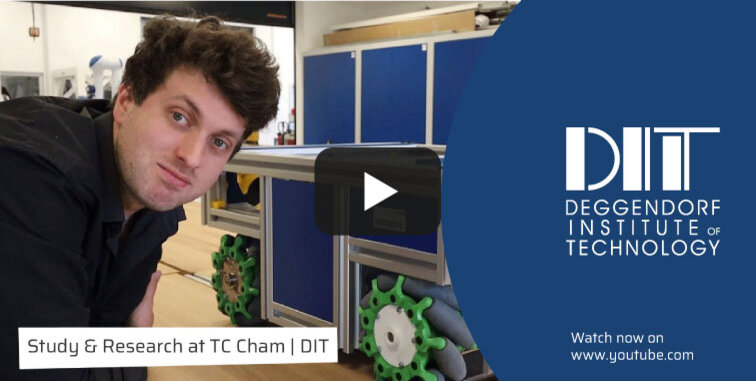shape tomorrow's digital world
create data management solutions for production processes
We provide support for internships, starting a job in a company, or setting up your own business

Create data management solutions for production processes
#productionmanagement #logistics #sustainability #quality #lean #statistic #AI #machinelearning #deeplearning
#dataanalysis #bigdata #innovative #englishpostgraduateprogramme #industrialengineering
In the age of digitalisation, the ability to analyse and process big data in industry has become indispensable. In all manufacturing industries, there is an increasing demand for qualified specialists to read and use Big Data in production processes to make efficient strategic decisions, develop innovations to improve everyday workflow and increase companies’ competitiveness while ensuring quality and sustainability in the digital production chain.
Lectures combining machine learning, data analysis, data management and intelligent systems will help you to deepen your understanding of innovative methods of data processing. In addition to this, modules like "Advanced Statistical Methods & Optimization" will prepare you for the increasing demands of AI in production, logistics and technology management. The theory you study will be put into practise through three case studies in AI, intelligent systems in production, and production systems, which are created and supervised by engineers from manufacturing companies.
MAIN FEATURES OF THE PROGRAMME
- The programme is a well-balanced combination of lectures, seminars, and case studies.
- Small study groups provide you with personal support and intensive tuition.
- Three AI case studies will help you to analyse problems independently and apply proposed solutions.
- State-of-the-art science labs are equipped with excellent equipment to supply you with the perfect infrastructure to study high-tech areas of AI.
- Compulsory German lessons equip you with language skills for you to kick-start your prospective future career in Germany.
- Cham’s international and multicultural campus community will make you feel at home.
All the important information at a glance: Take a look at this brief introduction to the master's program in Applied AI for Digital Production Management.
fact sheet
Degree: Master of Engineering (M.Eng.)
Duration: 3 semesters (1.5 years)
ECTS points: 90
Application period:
- Entry in October (winter semester): 15 April - 15 June
- Entry in March (summer semester): 01 October - 01 December
Location: Cham
Language of Instruction: English
Admission Requirements:
- Successful completion of an undergraduate study programme with at least 210 ECTS credits from the fields of Industrial Engineering, Production Technology, Mechatronics, or a related degree programme, or by a qualification that is equivalent to such a university degree. Based on the documents submitted, the examination board decides on the relevance of prior degrees.
- For this reason, applicants having obtained their academic training (e.g., undergraduate degree) in non-member states of the Lisbon convention are recommended to submit a GATE or GRE (general) certificate as well as a recognised German language certificate deemed to further substantiate their eligibility for this study programme.
- Additionally, the professional qualification for this study programme might need to be demonstrated in the context of an aptitude assessment. This written exam is based on a range of subject areas relevant for Applied AI in Digital Production Management, such as mathematics, physics, production & logistics, statistics, simulation and computer science. The exam is being conducted both online and on-site at the Campus Cham affiliated to the Deggendorf Institute of Technology. This exam is consulted to determine the major-specific eligibility and ultimately decides on the admission to this master’s programme.
Concerning all applications for the winter semester:
- For all applications received from 15th April to 15th June, the online admission test is scheduled shortly upon the end of the application period.
- The date of the online admission test cannot be chosen individually. Instead, the test date will be pre-defined by the examination board within the invitation email.
- Dependent on the date we received your application, applicants will either receive their invitation email in the middle or by the end of the application period.
Concerning all applications for the summer semester:
- For all applications received from 1st October to 1st December, the online admission test is scheduled shortly upon the end of the application period.
- The date of the online admission test cannot be chosen individually. Instead, the test date will be pre-defined by the examination board within the invitation email.
- Dependent on the date we received your application, applicants will either receive their invitation email in the middle or by the end of the application period.
Language Requirements:
If German is not your native language, proof of sufficient German skills is necessary.
If English is not your native language, proof of sufficient English skills is necessary.
Fees:
- No tuition fees, only student union fee
- International students from non-EU/EEA countries are required to pay service fees for each semester. Click here to read about our service fees.
Enquiries:
- Programme enquiries: studium-cham@th-deg.de
- Admission test enquiries: master-mdm-exam@th-deg.de
- General enquiries about studying at DIT: welcome@th-deg.de | prospective student advisors
course objectives
You will gain expertise in production, logistics and technology management which will enable you to manage or accompany technical projects in your future career. You will become an expert in:
- Machine learning methods
- Data processing methods (including cloud computing, big data)
- Modern statistical methods and optimisation procedures
- Production and logistics management
- Digital production systems
- Digital tools in development and production
- Quality and sustainability
career prospects
After graduating, you are open to a wide range of career opportunities in all companies that handle large amounts of data, e.g. companies from the car or semiconductor industry including their suppliers, and other companies that want to manage digitalisation in their production processes. There are a range of engineering positions focusing on digital production systems open in areas such as development, production, production planning and management, quality management, or research and teaching.
Here are some typical examples of professional challenges you might work on in production:
- Development and increased efficiency of predictive maintenance techniques, such as the collection and cleaning of data, and the creation of ML models with the aim of predicting required maintenance at a precise time point before a machine malfunctions.
- Collecting and evaluating large amounts of data in the search for outliers, e.g. recognising products that are good in the functional test but could fail at customer level (outlier detection).
- Automating product inspection (we develop this technique in our Sensor Lab at the Cham campus). Sensors are specifically stressed to analyse their lifespan behaviour, which generates data that can be used for lifespan predictions or even classifications.
- Analysis of production and product data to improve products.
- Improving stock-keeping efficiency by using targeted prediction, consumption and/or sales data.
- The general digitalisation of production, such as the introduction of barcodes, and the networking of systems with each other and with the internet, etc.
Seize the fantastic opportunities that will open up to you in your prospective career path!
student case studies
Three AI case studies will help you to analyse problems independently and apply proposed solutions. These are an integrated element of the masters programme in the first and second semester. Read on to find out more details about each case study:
This case study in the first semester focuses on a topic from the areas of Machine Learning and Deep Learning in Production & Logistics, Advanced Statistical Methods & Optimisation, Data Management and Production Data Management (Acquisition and Control). Get to know and test existing techniques and learn to understand where limits are, including the range of possibilities using ML/DL in comparison to conventional optimization methods.
Summer semester 2024
Winter semester 2024/2025
- Case Study AI-Project: Google Review Analysis using NLP and LLAMA Frame Work
- Case Study AI-Project: Sentiment Analysis using Natural Language Processing
- Case Study AI-Project: Turnover Forecast using Machine Learning and Deep Learning
This case study in the second semester covers a broad range related to production and production-related topics. For example, in the module "Intelligent Systems" of MSS, you could study text classification, chatbots, road damage detection, recognition of vehicles (traffic monitoring) and even the lifetime prediction of sensors.
This case study in the second semester focuses on concrete topics in "Digital Production Systems". This means design, improvement, and implementation of cyber-physical production systems (e.g. networking of systems with each other and with the internet), in addition to the simulation of production systems with specialised software packages, e.g. AnyLogic or Open Modellica.
subject overview
Overview of lectures and courses, SWS (Semesterwochenstunden = weekly hours/semester) and ECTS (European Credit Transfer and Accumulation System) in the master's programme "Applied AI for Digital Production Management":
| 1st Semester | SWS | ECTS |
| Machine Learning and Deep Learning in Production and Logistics | 4 | 5 |
| Advanced Statistical Methods & Optimization | 4 | 5 |
| Data Management | 4 | 5 |
| Production and Logistic Management | 4 | 5 |
| Digital Tools in Development and Production | 4 | 5 |
| Machine Vision | 4 | 5 |
| 2nd Semester | SWS | ECTS |
| Cross-Cultural Development for Engineers | 4 | 5 |
| Advanced Intelligent Systems | 4 | 5 |
| Case Study Intelligent Systems in Production | 4 | 5 |
| Digital Production Systems | 4 | 5 |
| Case Study "Production Systems" | 4 | 5 |
| Quality & Sustainability | 4 | 5 |
| 3rd Semester | SWS | ECTS |
| Subject-Related Elective Course (FWP) | 4 | 5 |
| Master's Thesis | - | 20 |
| Master's Seminar (two parts: Master's colloquium and seminar series "Career Start into German Technology Companies") | - | 5 |




